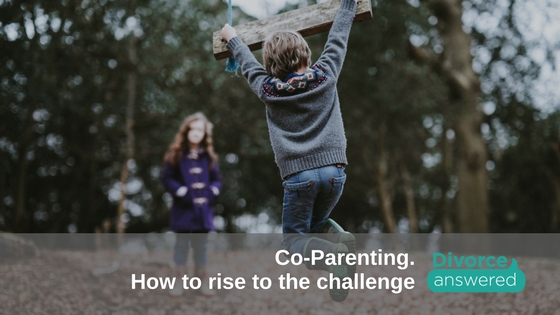
Co-parenting. It sounds like a great word, but many of us don’t know what it really is or how to do it. Rachael Scharrer, Divorce Expert and Founder of DivorceAnswered.com.au, sheds some light on co-parenting and how parents can rise to the (positive) challenge and plan how they navigate co-parenting together.
Co-parenting is finding a way for parents to work together and make decisions for the benefit of all people involved (for both parents and with a specific focus on the children). Co-parenting can occur in the homes of married couples but is more commonly referred to in separated families living in two homes. Co-parenting benefits the parents as much as it benefits the child.
The benefits of co-parenting to parents include:
The benefits to children of successful co-parents include:
My admiration and respect goes to the people who can and choose to co-parent. I have several friends who do this well. I don’t want to say that it is easy; It can be hard. One person often feels like they are doing more work than the other or accommodating the other parent more. It is a choice not to react or criticise the other parent for everything that they do. Acceptance that the other parent will never do exactly the same as you is essential. However, they do share family events. Their children are well-adjusted, happy and sociable. The parents are both happy and surrounded by a supportive social network. Co-parenting doesn’t mean that the parents have to be best friends to do it successfully. Most importantly, the parents work together for the benefit of the children with a bigger vision than just the immediate challenge.
Every person is different and every relationship is different, as such, co-parenting isn’t able to be prescriptive or a ‘one size fits all’ solution.
For co-parenting to work harmoniously, you and the other parent will need to commit to the following:
Before getting too far ahead, parents will need to create a Parenting Plan. This will offer each parent and the child structure and assist with decision-making and other responsibilities. The more detailed and thorough the parenting plan is, the less likely parents are to argue over the unknown or unforeseen.
Once you have a Parenting Plan in place, there is a lot for co-parents to consider like:
When I first separated, I had idealistic notions of living on the same property as the children’s father, living in different ‘wings’ of the house, sharing the communal spaces and allowing the children the freedom to move between each parent’s section/space. However, it didn’t happen and I was deluded to think that it was possible in my situation. Relationships involving severe domestic violence, abuse, addictions, mental health concerns, abandonment, certain criminal histories, particular Court Orders and neglect makes co-parenting either more difficult or not possible.
Not every relationship can entertain co-parenting despite the courts and family law encouraging both parents to have decision making rights, shared responsibilities and active involvement. However, if it is possible to co-parent or in the least implement some of the co-parenting principals, you and your children will immensely benefit emotionally, socially and personally.